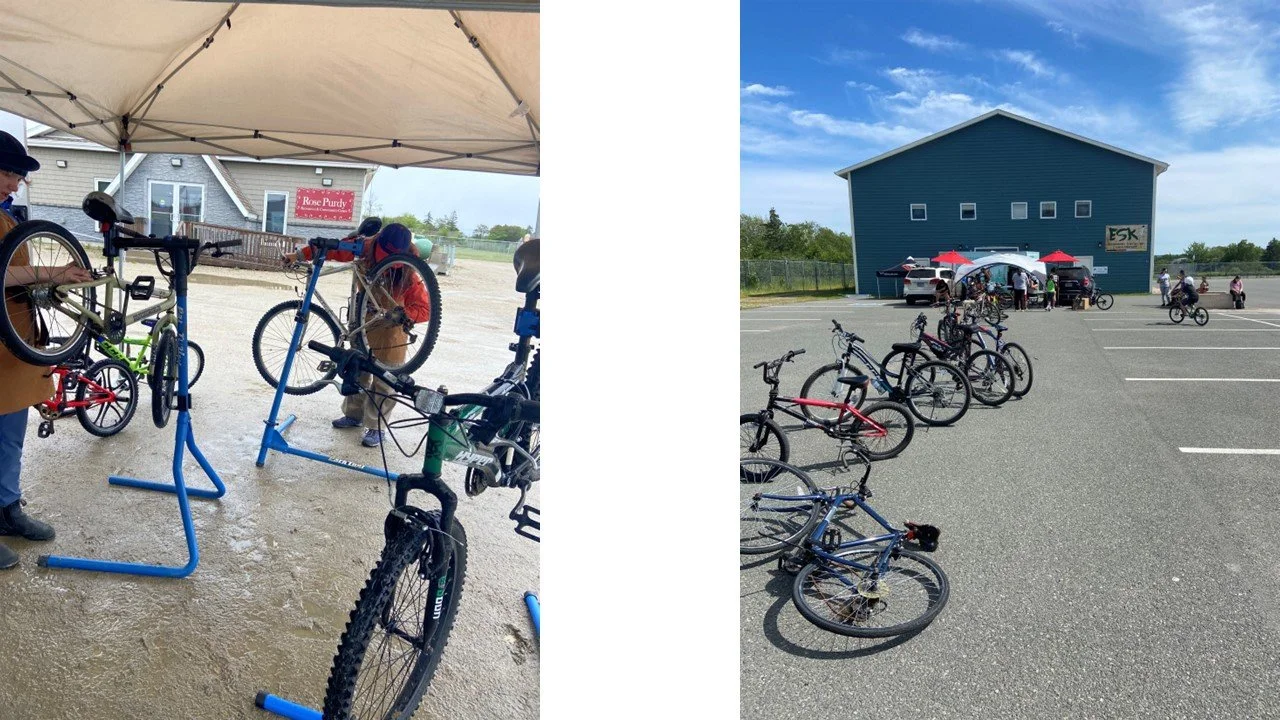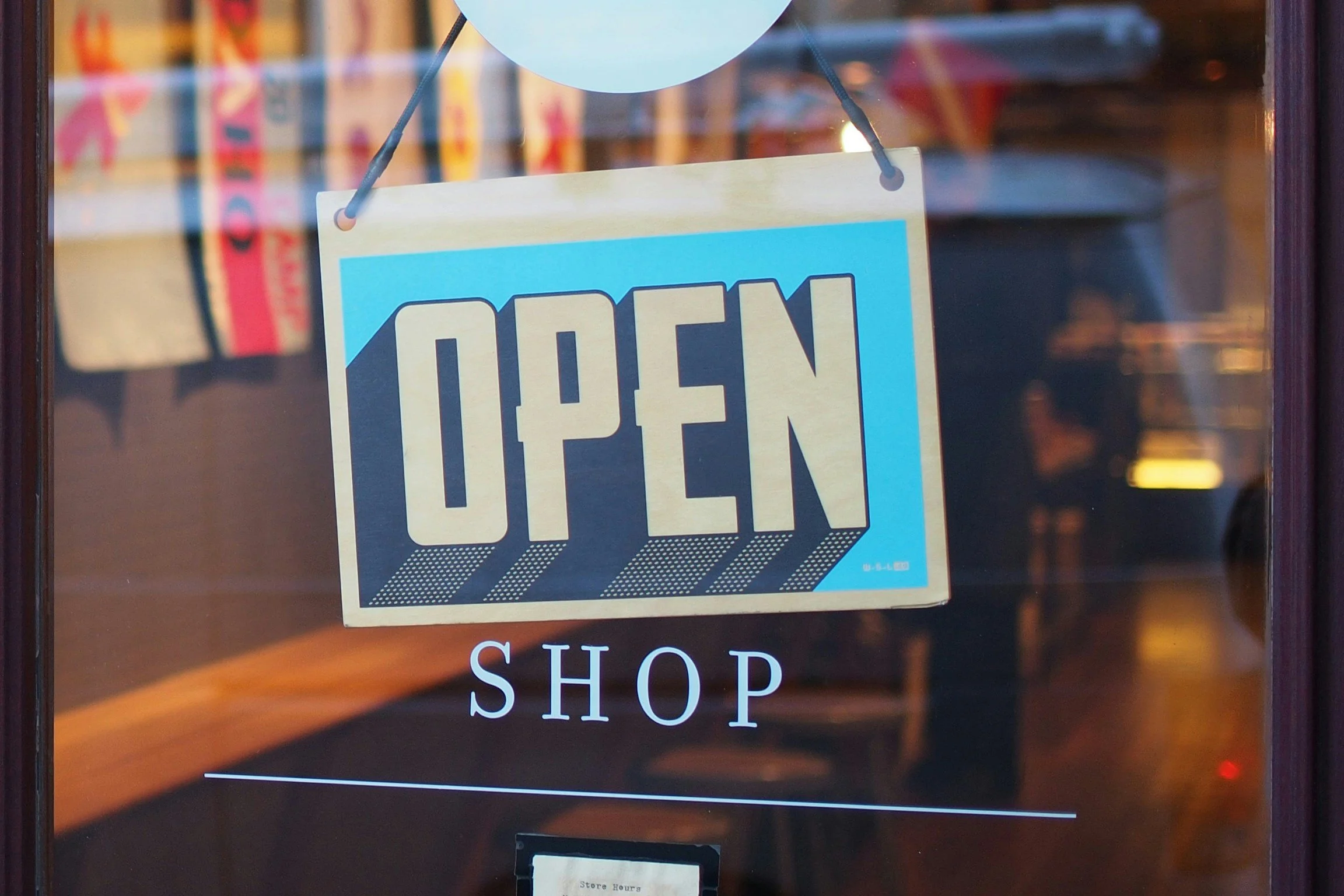Pop-Up Bike Hub
The EAC’s Pop-Up Bike Hub (PUBH) supports active transportation in equity-deserving communities. Driven by the needs and desires of communities to have accessible bicycle repair spaces, the project supports sustainable transportation options by getting people back on bikes by providing access to bike tools, free basic repairs, and safe cycling education programming. A fundamental component of the program is not only providing a bike repair service and knowledge, but also building relationships and capacity within the communities. This program aims to increase access to cycling resources and opportunities in Mi’kmaw and African Nova Scotian communities in Nova Scotia.
Grant award: $24,000
The Ecology Action Centre (EAC) is helping make active transportation options more accessible in communities across the province with their Pop-up Bike Hub (PUBH). The PUBH is a mobile bike repair trailer that can temporarily set up shop and provide free bike repair services to all who need it.
The PUBH was first piloted in 2020 with the goal of encouraging as many people as possible to use biking as a mode of transportation. The project piloted during the COVID-19 pandemic in 2020. During this time, there were fewer cars on the road, and concerns around using public transit led to more people cycling. “The pandemic actually provided a really good time to start riding bikes… There was definitely a renaissance of biking,” said Simone Mutabazi, Pop-Up Bike Hub Coordinator with the EAC.
The PUBH provides access to bike tools and free basic repairs, as well as information on safe cycling, while increasing capacity within communities and building relationships. The program specifically looked to collaborate with communities who didn’t have access to bike repair services, had limited public transportation options, and were generally left out of the conversation when it comes to active transportation infrastructure like bike lanes, car-less streets, and cross-walks. After two years of operating the PUBH in various communities across the province (and repairing over 2000 bikes!), the EAC spent a season operating in three historically African Nova Scotian communities within the HRM: East and North Preston, and Cherrybrook. This portion of the project was supported by the Accelerating to Zero grant from HCi3.
As of right now, there is only one bike repair shop in HRM outside the peninsula, and it’s in Lower Sackville. For all the communities outside those areas – including the Prestons and Cherrybrook – this is a barrier to taking up cycling. Bikes require regular maintenance and repairs can be expensive, adding to the cost of purchasing a good, functional bike. By bringing bike repairs directly to community, the PUBH is providing the community with the opportunity to learn about active transportation options, get their bike tuned up or repaired, and demonstrate to policy-makers and decision-makers the value of investing in active transportation infrastructure. “The idea [of the bike hub] is to be a hub of services: there’s the free bike repair services and tune-ups, [and] there’s also… the knowledge sharing and safe cycling education,” said Mutabazi.
By providing services that encourage the uptake and continued use of biking among these communities, the EAC is also helping promote the physical, cognitive, and emotional benefits that come from cycling, in addition to the greenhouse gas emissions people will save as a result of diversifying their transportation methods. “The PUBH overall contributes to a future of climate resilience, promotes a circular economy, and reduces reliance on single occupancy vehicles,” stated Mutabazi.
Looking to the future, the EAC is continuing to plan for future programming, including more work in Cherrybrook. Based on feedback they received during this project, the EAC is planning on adjusting their engagement methods to best serve the needs of the community. “I think there’s something really important about being able to meet a community where they are, go to them, and make your service accessible directly to the community that you’re interested in working with.”





